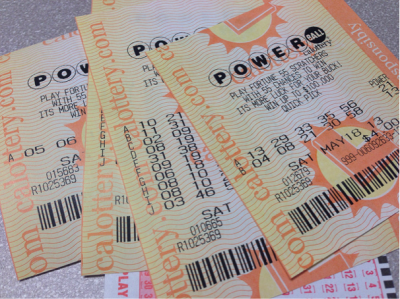What a ride.
The DOW jumped past 18,000 recently, and then, somewhat predictably, has been bouncing around that area ever since. But things have been moving skyward for a while now, and many investors are feeling a bit giddy with the recent bull market. It’s an excitement that makes today the perfect the time to talk about the importance of behavioral finance and its impact on investor psychology.
If you’ve never heard of behavioral finance, it’s a theory based on the belief that cognitive psychology has the power to alter our decision-making ability when it comes to our finances. As a whole, people are rational when it comes to maximizing wealth and striving to create a more comfortable and secure lifestyle, yet it’s surprisingly common for people to make highly irrational decisions when it comes to investing.

A great example is the recent $500 million Powerball drawing—the fifth largest lottery prize in U.S. history. People around the country lined up in droves to buy lottery tickets in hopes of winning the jackpot. But what are the odds? 1 in 175 million. If that money came in a single, tax-free pot, such an investment may actually be pretty wise. But as taxable “income” that is most often spilt into pieces, the statistical odds of receiving a return on your investment are even more diminished. And when you realize that your odds of being struck by lighting this year is 1 in 700,000, you can see how irrational it is for people to be tossing their money in that direction. Yet millions of people make the choice to “dream big” and add their money to the pot—even when they know how little chance they have of taking home the cash.
It’s easy to look at the lottery as an anomaly. It’s just a game after all. But “dreaming big” may be costing people much more than they realize—especially when it comes to the stock market.
Last spring, James and Maya, a couple I’ve worked with for years, wanted to talk about shifting their portfolio. They felt we weren’t taking on enough risk; that our current approach was much too conservative for them to see the gains they hoped for. They were both hoping to retire by the end of 2016, and they felt more risk was well worth the potential of a greater return on their investment. James had read an article saying that equities were poised to grow for the next two years, and they wanted to take advantage of that market trend.
I wondered if I’d been wrong to steer them toward a level of conservative investing that seemed to fit their ages. Despite how close they were to retiring, everyone has a unique tolerance for risk. Perhaps I’d underestimated their risk tolerance. Maybe, at least for James and Maya, it made more sense to be more aggressive. I suggested they complete a detailed emotional risk tolerance assessment to see where they really stood.
The results were fascinating. The changes they had suggested when they first came in—shifting to 70% equities—would have given their portfolio an extremely aggressive risk tolerance score of 85. Before giving them the assessment, I was able to talk them down to a more tolerable (yet still highly aggressive) score of 69. But although both James and Maya were vocal about their desire to take on more risk, their responses to the questionnaire painted a very different picture. In fact, their combined score for emotional risk tolerance was just 29. While they clearly wanted the potential for gains, in reality, they were both emotionally averse to risk. If the market shifted downward over the next 24 months (and the odds of that happening surely beat the lighting statistic!) they would have been highly uncomfortable with the level of loss they would see.
James and Maya aren’t unique. Richard H. Thaler, a pioneer in behavioral finance, has been studying investor psychology for years. His latest book, Nudge: Improving Decisions About Health, Wealth, and Happiness, is based on his decades of research in behavioral science and economics, and it presents his theories about how we make choices—and how we can make better ones. Another pioneer in the field andwinner of the Nobel Prize in Economics is Daniel Kahneman. His New York Times bestseller Thinking, Fast and Slow explains the two systems that drive the way we think— “fast, intuitive, and emotional” vs. “slower, more deliberative, and more logical”—and the effect of cognitive biases on everything from playing the stock market to planning our next vacation. In both books, the lessons are clear: reducing the role of emotions can help us make better decisions.
Of course, a certain amount of “dreaming big” isn’t a bad thing. As your advisor, it’s my job to be sure the odds really are in your favor. I’m constantly evaluating the latest market shifts and identifying any necessary changes to your current asset allocation, and I strive to keep your approach in line with your personal goals and tolerance for risk. If you feel something’s changed, come on in and take your own emotional risk tolerance assessment. No matter what the results, we’ll build a portfolio that offers much better odds than 175 million to 1—and one that’s tax-favored to boot.
Are your own emotions wreaking havoc with your financial decisions? Let’s set a time to talk about how we can work together to reduce the thrills and up the odds for your financial success.






